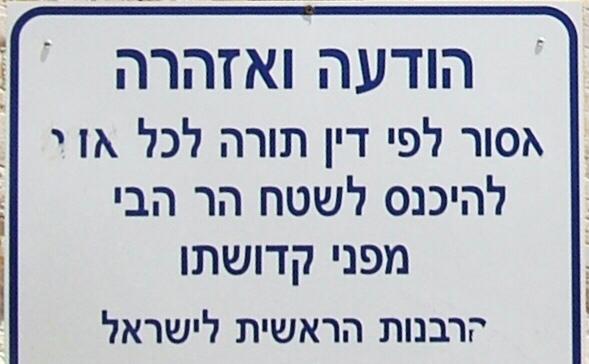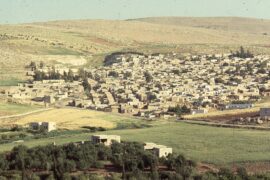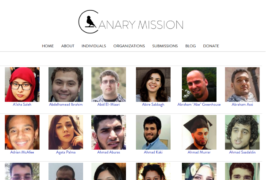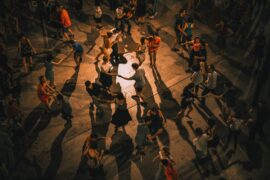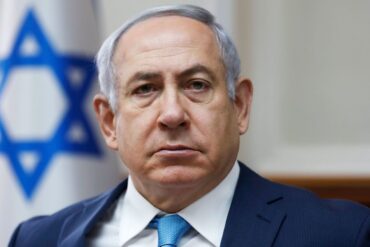Member of Knesset Waleed Taha of the United Arab List faction made headlines last week for accusing Israel of “contaminating” the Al-Aqsa Mosque.
While the charge itself isn’t especially newsworthy, as it has been used by various Palestinian leaders for decades, its timing, after a month of tension over Al-Aqsa and a week before Taha’s entry into the new “change government” led by Yair Lapid (Yesh Atid) and Naftali Bennett (Yamina), is auspicious.
Since the charge was used by Yasser Arafat as a pretext for the Second Intifada, it has largely been decried as anti-Semitic by Israelis and Jews across the world. It carries hints of European tropes of “dirty Jews” that were accused of “contaminating” the racial purity of Europe. And for a nation still living with the inherited trauma of the Holocaust, responses of fear, anger, and distrust are understandable.
Yet the Ḥasidic masters teach that within all of Creation, even the darkest depths, there lie sparks of kedusha. If we can rise above our trauma for a moment, and listen for the spark of truth behind Taha’s accusation, we may find that HaShem is speaking to us through those we perceive as our enemies.
The Temple Mount holds a truly unique place in the Jewish worldview. It’s a “holy place” – the site of our two Temples, but also so much more than that.
Our sages teach that the “Even HaShtiya” – the rock upon which the Ark of the Covenant rested in the Holy of Holies – is the origin point of the Creation, and of our entire material reality.
The numerous laws in the Mishnah regarding the levels of purity required to ascend to the Temple Mount, let alone to approach the Even HaShtiya (the “Rock” from which the “Dome of the Rock” took its name) are only shallow hints of the incomprehensible metaphysical forces at play there.
In our material world, we can’t even begin to comprehend the potential spiritual implications of our actions on the Mount.
And yet, hundreds of Jews ascend whenever possible in order to demonstrate our people’s continued attachment to the place that served as the focal point of our tefillot and deepest collective yearnings for millennia.
For many Jewish nationalists, ascending the Temple Mount has come to express a commitment to advancing our people’s struggle, both because Israel’s agreement with the Muslim Waqf severely limits the rights of Jews in the sacred site and because many have mistakenly identified Jewish control over the Mount as the next objective of Jewish liberation.
But are we ascending with the proper level of awe, of respect, of purity, for the place that HaShem designated as the point of contact between the Divine Presence and our material world?
Rabbi Shlomo Zalman Auerbach, one of the greatest halakhic minds of our time, “worked with all his heart, in numerous ways, to publicize the gravity of the prohibition to ascend to the Temple Mount,” in the words of his son, especially in light of our generation’s inability to comprehend the severity of such a breach of holiness.
Rav Shlomo Zalman’s stance was not unique, but rather the majority opinion in halakha. His position is shared by the leading poskim across the broad spectrum of Am Yisrael: National (Rabbis Kook, Shapira, and Tau), Ḥaredi (Rabbis Kanievsky and Shakh), Ashkenazi (Rabbi Elyashiv), Sefardi (Rabbis Eliyahu and Yosef), as well as the Ḥasidic masters of various dynasties.
Rabbi Avraham Yitzḥak HaKohen Kook warned against the dangers of ascending, even to the areas that are permitted to those with certain ritual impurities, since such permissiveness would inevitably lead those who are unaware or uninterested in the halakhic intricacies around the Temple Mount to ascend as well, transgressing explicit Torah prohibitions and doing unimaginable spiritual damage to the redemption process.
Indeed we’ve seen a recent phenomenon of Jewish nationalists disconnected from our Torah ascending the Temple Mount without concern for halakhic requirements of ritual purity or prohibitions on where to walk. The Torah-observant activists who’ve fought to mainstream ascending the Mount even applaud this desecration and argue that it’s permissible for the sake of “conquest” (despite the fact that Israel already liberated the site in 1967).
Israel’s former Sefardi chief rabbi, Rav Eliyahu Bakshi-Doron, presented a more practical opposition, insisting that the rabbanut saw Jewish sovereignty over the Temple Mount as a matter of utmost importance, but that attempts to ascend, build a synagogue, or other similar attempts to take control of the Mount, were a breach of the necessary awe for the Temple.
In the words of Rav Bakshi-Doron, this necessary awe, the basis for the rabbinate’s explicit prohibition against ascending, gravely outweighs any misguided attempts to take control of the Mount by changing facts on the ground. Rav Bakshi-Doron related to the notion of ascending as a demonstration of our connection as a dangerous fallacy, since such an approach would necessitate approaching the Even HaShtiya as well, a clear prohibition for all but the Kohen Gadol on Yom Kippur. Rather, the awe that prevents us from ascending is a far deeper demonstration of how dear and sacred the place is to us, and our obligation to protect it.
So, in light of the words of the leading scholars of our day, we must return to this week’s headlines. Is there a hidden truth in Waleed Taha’s claim that we’re “contaminating” the Temple Mount? Might we see his apparently anti-Semitic incitement as a message from HaShem, and Taha and the UAL factions as HaShem’s vessels to push us forward in our own national mission to bring kedusha to the world? And is the Temple Mount the only window in our reality through which HaShem sends us such guidance?
Rav Kook and his students instruct us to approach the national revival of the Jewish people in our land with a comparable level of awe for its kedusha. In this period of national revival, every government and every law has tremendous potential to express kedusha, the intersection of the Divine and the mundane in our world.
This explains the deep complexity of a disagreement between Rav Zvi Yisrael Tau, regarded by many as the successor to Rav Zvi Yehuda HaKohen Kook, and lawmaker Betzalel Smotrich (Religious Zionism).
After originally publishing a statement that Israel forming a governing coalition reliant on any non-Jewish faction for survival is a ḥillul HaShem – a desecration of the Divine Ideal – Rav Tau published a second statement that, in light of the failure of Jewish parties to form a coalition, and the various policies promoted by the “change bloc” that would similarly be a ḥillul HaShem, it was preferable to form a government grounded in Torah and dedicated to sanctifying the Divine Ideal (Kidush HaShem) through the state, even if such a government required the support of non-Jewish parties.
Smotrich, on the other hand, continues to assert that such a coalition would be politically dangerous, and legitimize Palestinian political forces in the Israeli government. Even after the formation of the “change government” with the UAL faction, Smotrich continues to be hyper-focused on lambasting his opponents in the new coalition as “terror supporters” and “the left” while refraining from making clear statements about the government’s actual agenda.
The refusal to even entertain the notion of forming a coalition together with a Palestinian faction stems from the same shallow thinking that assumes the next phase of the redemption process must be a fight for the Temple Mount. After so many centuries of exile and so many layers of colonization, the Jewish people’s liberation is a long complicated process that requires us to avoid dogmatic thinking and constantly assess the new conditions and challenges created by previous successes. Israel’s hardcore national camp should consider that perhaps the Palestinians could become our partners at this stage and that there might be several objectives to achieve before Israel can develop to the point of being ready for the Mount.
Even the prophet in ancient times told King David that the Temple is a goal to achieve once there’s already peace. It cannot be turned into a magic formula to accelerate the redemption process.
Former Prime Minister Binyamin Netanyahu (Likud), leaders of the Shas faction, and even Rav Tau himself have been critical of Smotrich’s shortsightedness. It remains to be seen what policies the new government will actually be able to pass, but if their coalition agreement is any indication, we may soon see the results of that stubbornness.
Smotrich’s political jockeying, similar to the overzealous “protection” of the Temple Mount by those who in fact might be causing its desecration, may just bring about the ḥillul HaShem that he fought so hard to prevent.

